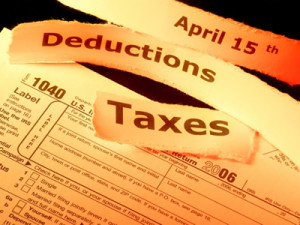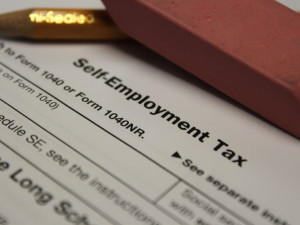"Your Local Tax Problem Solvers Since 1992"
ORLANDO: 407-915-3470
TAMPA: 813-708-5530
Self employed taxpayers who have not formed a partnership and have not incorporated generally must report the results of their business operations on a form Schedule C which is attached to their individual income tax return or form 1040.
Business taxpayers who report their income and expenses on Schedule C are bound by the same record keeping requirements as those who operate as partnerships, LLCs and corporations.
The IRS requires that taxpayers keep records of their income and deductions.
 Only expenditures that are considered ordinary and necessary to the business are tax deductible. Thousands of tax court and district court tax cases address the issue of what is ordinary and necessary.
Only expenditures that are considered ordinary and necessary to the business are tax deductible. Thousands of tax court and district court tax cases address the issue of what is ordinary and necessary.
A good starting point in deciding whether or not a business expenditure is ordinary and necessary is to ask yourself if you would have incurred the expense were it not for your business. If the answer is yes, the expenditure is probably not deductible, either in full or in part.
Consult with your tax advisor if you have questions about the deductibility of business expenditures.
 A self-employed taxpayer who files a Schedule C is considered both an employee and an employer for federal tax purposes. Consequently, he must pay both the employee’s portion and the employer’s portion of Social Security and Medicare withholdings.
A self-employed taxpayer who files a Schedule C is considered both an employee and an employer for federal tax purposes. Consequently, he must pay both the employee’s portion and the employer’s portion of Social Security and Medicare withholdings.
Thus, if a self-employed taxpayer earns $50,000 after the deduction of ordinary and necessary business expenses, he will have to pay the IRS $7,650 in SS and Medicare taxes as follows:
| Self-Employment Income | $50,000 |
| Employee portion of SS & Medicare (7.65%) | 3,825 |
| Employer portion of SS & Medicare (7.65%) | 3,825 |
| Total Self-Employment Tax | $7,650 |
This heavy tax burden is one of the reasons we recommend that our business clients either incorporate or form an LLC and make an election to be treated as an S Corporation.
Choosing the right form will save you a lot of money and a lot of stress. Call or contact us today and we will help you.
I usually advise my clients to operate their businesses in either the corporate or Limited Liability Company (LLC) form. There are many reasons I give this advice, but here are the top 5:
There is one dubious advantage to operating as a sole proprietorship:
Short-term cost savings – The only advantage of operating a business as a sole proprietorship rather than a corporation or LLC is short-term cost savings. And even this advantage is fleeting because failing to insulate yourself from personal liability by operating in the corporate or LLC form could in the long run end up costing the small business owner thousands , if not millions, of dollars and a destroyed credit rating. Failing to incorporate or operate as an LLC in order to save a few bucks is penny wise and pound foolish and many small business owners have been forced into personal bankruptcy because they did so.
If you are considering starting a business or have already started one, consult with a tax attorney or tax CPA or an IRS enrolled agent to determine whether the form of your business is the best one for you.
The IRS audited my 2007 and 2008 tax returns and disallowed 100% of my business expenses because the auditor said I didn’t have sufficient records. I hired The Pappas Group and they were able to prove by other means that my deductions were valid and the IRS ended up only disallowing about 15% of my expenses. Had I not hired Pappas I would been assessed taxes, penalties and interest in excess of $100,000. The Pappas group now does all of my accounting work and prepares both my business and personal tax returns.